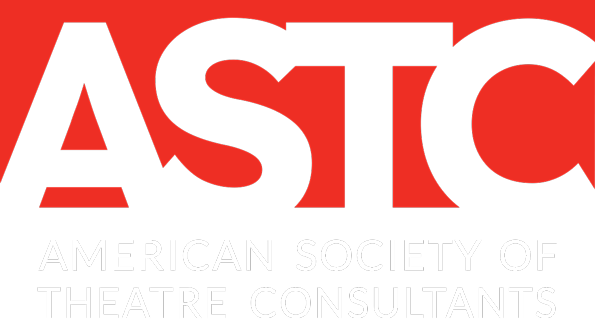- Filter by
- Categories
- Tags
- Authors
- Show all
- All
- ASTC in Havana
- Backstage Art
- College/University Challenge
- ESTA
- General ASTC News
- How Much Will My Theatre Cost?
- IAVM
- International Code Council (ICC)
- NATEAC
- Theatre Consultants
- Theatre Design - Did You Know?
- Theatre Design Article
- Theatre Design Book Review
- Theatre Industry News
- Theatres in Cuba
- Uncategorized
- USITT
- All
- ASTC
- ASTC New Members
- technical theatre
- theatre consultants
- theatre programs
- theatre renovation challenge
- USITT
- All
- Alex Robertson
- Chip Ulich
- Andrew Gibbs
- Duane Wilson
- Heather McAvoy
- Howard Glickman
- Jack P. Hagler
- Jim Hultquist
- Joe Chapman
- Kent Conrad
- Kevin Greene
- Kimberly Corbett Oates
- Michael Parrella
- Michael McMackin
- Admin
- Paul Sanow
- Peter Rosenbaum
- Peter Scheu
- Raymond Kent
- Robert Davis
- Robert Jenista
- Robert Long
- Robert Shook
- Robert Smulling
- Rusty Cadaret
- Staff
- Stephen Placido
- Ted Ohl
- Van Phillips, ASTC
- William R. Conner, FASTC
December 9, 2025
Published by Paul Sanow on December 9, 2025
Did you know it is important to make sure all of the people involved in a project are using the same vocabulary? One word often used in architectural design projects that can be confusing for administrators and end users is “program”. It can mean lots of things to many people and all of them are right!
Do you like it?
June 2, 2025
Published by Paul Sanow on June 2, 2025
Categories
While it is important to understand the unique needs of performers and the public, another group is often forgotten in space planning. Just because they wear a lot of black and stay out of the public’s view it does not mean their needs should be forgotten. Let’s find some room for the stage crew.
Do you like it?
October 11, 2024
Published by Paul Sanow on October 11, 2024
Categories
Access is a common concern in performing arts buildings. Often this refers to equal access for all members of the public and removing barriers. There’s another important type of access that is part of using and maintaining these complicated buildings. It is necessary to be able to get to all of the equipment in a performing arts building for operation and maintenance.
Do you like it?
February 21, 2024
Published by Paul Sanow on February 21, 2024
Sometimes there is confusion in the marketplace about the roles of theatre consultants and dealers. Some owners or architects elect to work with a dealer, thinking they will receive the same level of service as they would from a dedicated theatre consultant, and possibly for free. Theatre consultants and dealers may each be considered “theatre experts”, but they have very different roles and agendas in the construction process.
Do you like it?
December 2, 2023
Published by Paul Sanow on December 2, 2023
Categories
Lobbies aren’t just places where audiences mill about, waiting for the doors to open so they can find their seats. More and more operators want these spaces to serve a variety of functions, often to generate revenue or at least provide audience service.
Do you like it?
November 18, 2023
Published by Paul Sanow on November 18, 2023
Categories
The ASTC continues to be active at the International Association of Venue Managers (IAVM) Conference, this year in Pittsburgh. Two intrepid ASTC Fellows led the charge with the next installment of their history series.
Do you like it?
November 12, 2022
Published by Paul Sanow on November 12, 2022
Categories
The American Society of Theatre Consultants (ASTC) mourns the loss of longtime member and Fellow, James “Jim” Read, FASTC, who passed away on November 2, 2022.
Do you like it?
August 22, 2022
Published by Paul Sanow on August 22, 2022
Dressing and Makeup Rooms have specific requirements that are often ignored or misunderstood. Some of those requirements help performers do the work they need to do, while other requirements are there for life safety.
Do you like it?
June 14, 2022
Published by Paul Sanow on June 14, 2022
Categories
ASTC has created a mentorship program for students so they may learn about our profession, and with any luck, better expose students to a career path they may not know exists. The first student has now been through the program in New York City.
Do you like it?

